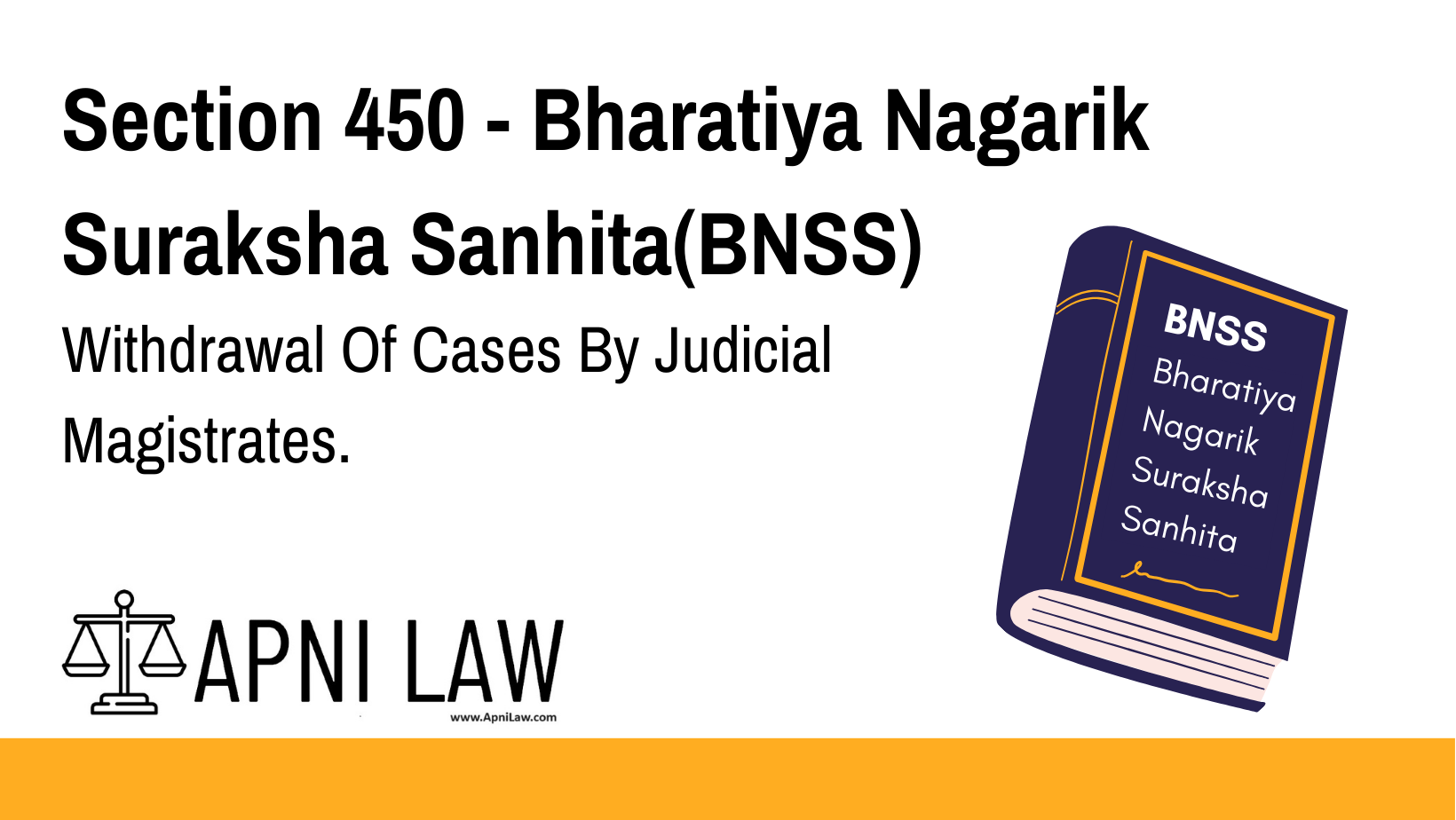Code: Section 450 BNSS
Section 450
(1) Any Chief Judicial Magistrate may withdraw any case from, or recall any case which he has made over to, any Magistrate subordinate to him, and may inquire into or try such case himself, or refer it for inquiry or trial to any other such Magistrate competent to inquire into or try the same.
(2) Any Judicial Magistrate may recall any case made over by him under sub-section (2) of section 212 to any other Magistrate and may inquire into or try such cases himself.
Explanation of Section 450 BNSS
Section 450 provides specific powers to Chief Judicial Magistrates and Judicial Magistrates regarding the withdrawal or recall of cases. This section grants flexibility to the Magistrates in managing cases that have been assigned to subordinate judicial officers. The section describes the process by which a Chief Judicial Magistrate or a Judicial Magistrate can withdraw a case and either deal with it themselves or refer it to another Magistrate who is competent to handle the case.
Key Provisions:
- Power of Chief Judicial Magistrate:
- Sub-section (1) grants the Chief Judicial Magistrate the authority to withdraw or recall any case that has been assigned to a subordinate Magistrate. The Chief Judicial Magistrate can then either inquire into or try the case himself or transfer it to another competent Magistrate for further inquiry or trial.
- Power of Judicial Magistrate:
- Sub-section (2) provides that a Judicial Magistrate who has made over a case to another Magistrate under sub-section (2) of section 212 can recall the case and inquire into or try the case themselves.
Illustration
Example 1: Withdrawal by Chief Judicial Magistrate
A Chief Judicial Magistrate has assigned a case to a subordinate Magistrate for inquiry. After reviewing the case, the Chief Judicial Magistrate decides to withdraw the case and handle the trial himself, ensuring that he has control over the legal proceedings due to the seriousness of the matter.
Example 2: Withdrawal by Judicial Magistrate
A Judicial Magistrate has referred a case to another Magistrate for trial under the provisions of section 212. Later, the Judicial Magistrate recalls the case from the other Magistrate and decides to conduct the trial personally in their own court.
Common Questions and Answers on Section 450 BNSS
1. Can a Chief Judicial Magistrate withdraw a case from a subordinate Magistrate?
- Answer: Yes, under sub-section (1), a Chief Judicial Magistrate has the authority to withdraw or recall any case that has been assigned to a subordinate Magistrate. The Chief Judicial Magistrate may either deal with the case themselves or transfer it to another competent Magistrate for further action.
2. Can a Judicial Magistrate recall a case they have referred to another Magistrate?
- Answer: Yes, sub-section (2) allows a Judicial Magistrate to recall a case that they have referred to another Magistrate under section 212(2) and proceed with the inquiry or trial themselves.
Conclusion
Section 450 provides judicial flexibility to Chief Judicial Magistrates and Judicial Magistrates in the management and handling of cases. It ensures that a Magistrate can take back control of a case from a subordinate or referred Magistrate and ensures that cases are handled at the appropriate level based on the circumstances. This provision ensures the Magistrates can exercise discretion over their cases, ensuring fair and effective justice.








